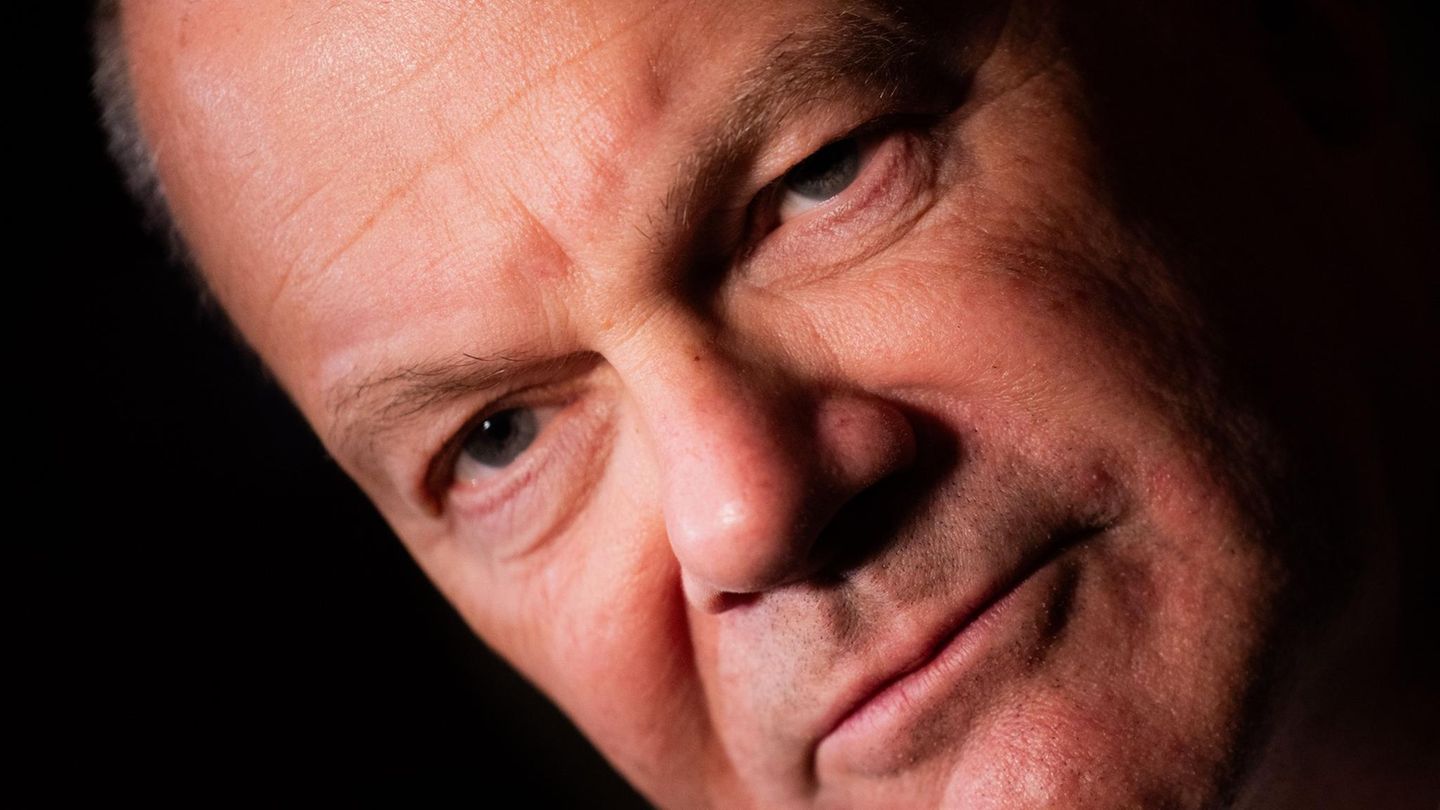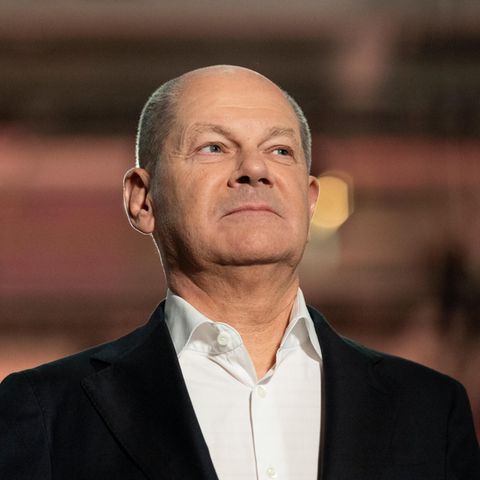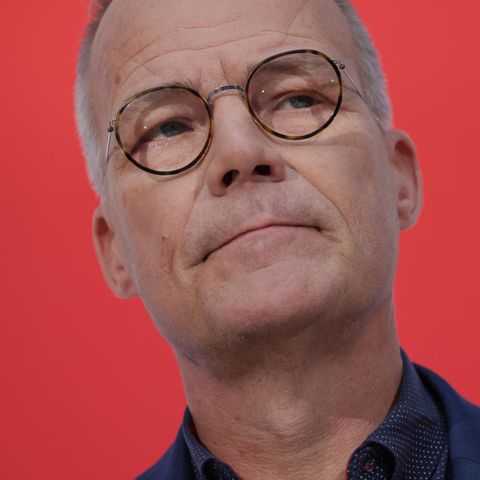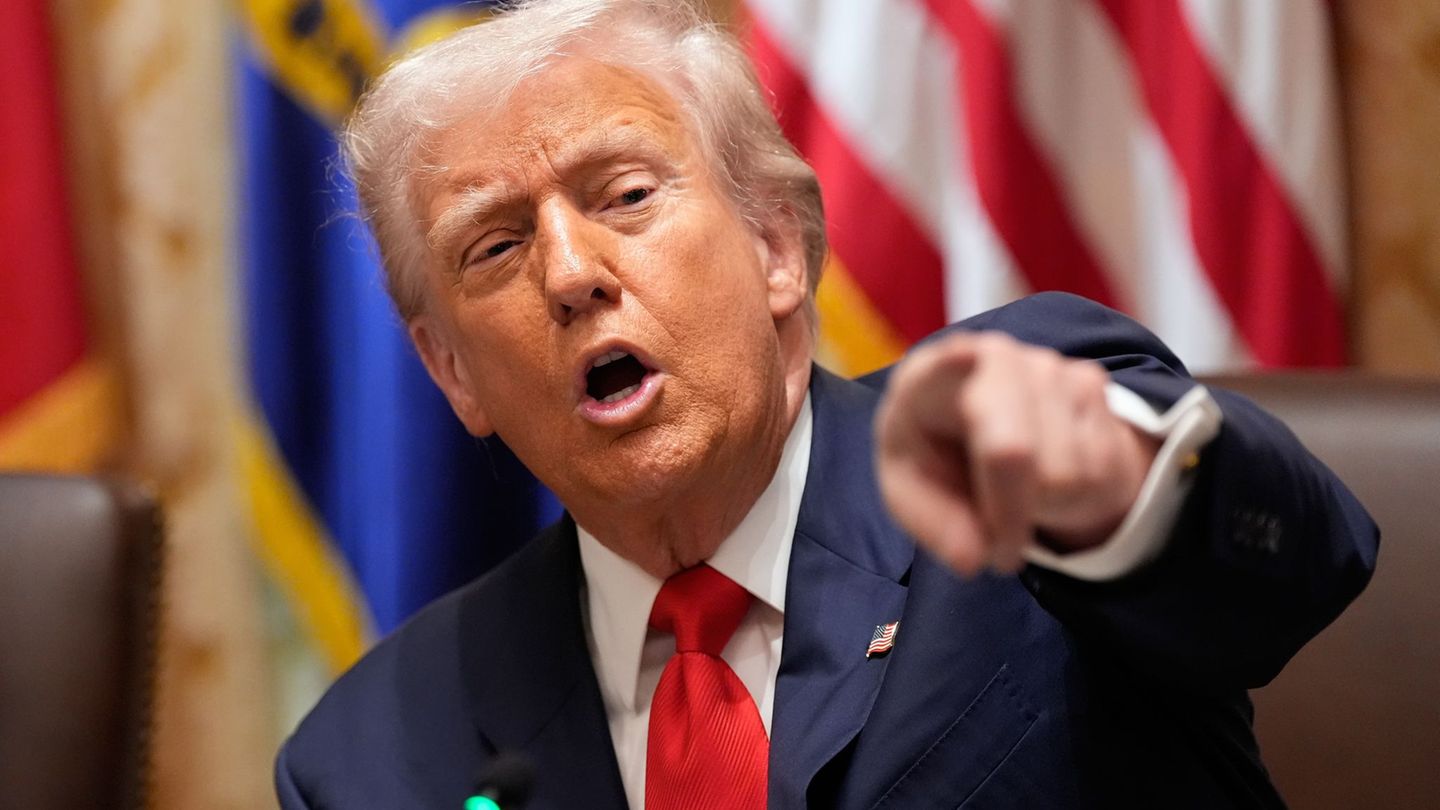Election campaign
The SPD is clinging to these three straws
Copy the current link
The SPD is not coming out of the polls, and elections are taking place in just under five weeks. Will this still be something? What Olaf Scholz and his party are betting on.
By breaking the unpopular traffic light, the Social Democrats gained new hope. The SPD declared itself liberated, its Chancellor Olaf Scholz vowed to catch up again. But even three months after the supposedly salutary shock, the Chancellor’s party does not seem to be coming out of the slump and seems to be cemented in at between 14 and 16 percent in the polls. The hoped-for trend reversal has so far failed to materialize.
In the Willy Brandt House, the party headquarters in Berlin, people are keeping a close eye on the days until the federal election: there are still 37 left. If the polls don’t turn slowly, unrest is likely to break out in the SPD.
A graphic, printed in a kind of campaign newspaper, is intended to motivate the election campaigners. It’s about the last federal election in 2021: You can see the poll numbers of all parties from January to October, the SPD’s initially poor curve is highlighted in red. In August, with the official start of the campaign shortly before the election, this skyrocketed – first past the Greens, then also the CDU. “Today we know,” says the graphic above, “that our unswerving adherence to our strategy has worked.”
But what is the SPD’s strategy? And will it also lead to success in 2025?
The starting position is different than it was three and a half years ago. The traffic light coalition is proving to be a heavy burden for the already unpopular Chancellor (candidate) Scholz; his proclaimed race to catch up must succeed quickly instead of gradually because of the early elections – and be nothing less than spectacular. With 30 percent in the polls, the Union is currently not even within striking distance of the SPD. But the comrades are clinging to three straws – despite everything.
1. Other people’s mistakes
The survey graphic in question not only shows the start of the campaign, but also the “flood in NRW/RLP”. What is meant is the Ahrtal flood, which may have cost Armin Laschet, the Union’s then candidate for chancellor, the chancellorship because of a laugh in the flood area and turned the election campaign in favor of the SPD. The mistakes in the CV of Annalena Baerbock, then the Green Party’s top candidate, and the plagiarism allegations against her are also marked in the curve.
The Social Democrats apparently draw two conclusions from this. First: avoid mistakes. Second: highlight other people’s mistakes.
The SPD obviously sees great potential in this. Within a very short time, numerous top comrades pounced on the statements of Union Chancellor candidate Friedrich Merz, who had expressed doubts about a quick switch to green steel, and jazzed up the topic with pithy quotes about the threat to an entire industry. Merz has now qualified his statements.
Some comrades are therefore looking forward to the upcoming TV duels between Scholz and Merz with cautious confidence. The latter is easily irritated and may become careless in the heat of the moment. Will he then pull one out again? Do you have to backtrack if necessary? With such exposure, possible failures of the Union candidate could be particularly serious and allow Scholz to emerge from the duel as a sovereign statesman, it is hoped.
2. The SPD as a program party
But even top colleagues have no illusions: Olaf Scholz is unpopular. Your election program, self-confidently titled “government program,” should therefore be the focus of the campaign – especially since the other candidates for chancellor are also unpopular.
“The election campaign has only just begun,” regarding his party’s unpleasant poll results. “In the next few weeks, people will look at the programs and recognize the big differences between the SPD and CDU/CSU, and not just in terms of staff.”
The assumption, as in 2021, is that voters only start to think about the election shortly before the date – and about the content that is up for election. The SPD is preemptively calling for a “directional decision” and is trying to frame the Union as yesterday’s party for the top ten thousand. “Friedrich Merz stands for the politics of yesterday,” said Miersch, while the SPD is fighting for economic growth that also benefits “ordinary people.”
These “normal people,” explained Chancellor Scholz at the SPD party conference a few days earlier, often footed the bill. The SPD program therefore does not include any tax cuts for top earners. “If you really want that, you have to vote for the CDU. Or FDP,” emphasized Scholz in barely concealed class struggle rhetoric. His SPD, on the other hand, relies on (well-known) recipes such as increasing the minimum wage to 15 euros and higher taxes for the super-rich in order to relieve the burden on lower income groups.
The focus of the program is also reflected in the SPD posters, which, in addition to Scholz, also show other top comrades such as Popularity Minister Boris Pistorius or Labor Minister Hubertus Heil, each flanked by political demands. It is an indirect admission: From the SPD’s point of view, the Chancellor alone is not suitable as a driving force for the election campaign.
3. Trump, the political troll from overseas
Olaf Scholz could have left Donald Trump’s appearance uncommented, following the motto: That only adds value to the nonsense and will fizzle out with the next derailment anyway. Instead, he reprimanded former and future US presidents to respect the “inviolability of borders” after Trump suggested the US could incorporate Greenland, Canada and the Panama Canal.
An erratically acting political prick like Trump comes in handy for the Chancellor and the SPD. Scholz wants to position himself in the short winter election campaign as a determined and prudent statesman who also keeps a cool head on the international stage. Scholz is also trying to make a name for himself against Trump’s confidant Elon Musk, who drums up support for the AfD on his short message service X – as a bulwark against right-wing populists and extremes. “He supports the extreme right,” which is “completely unacceptable” and endangers the democratic development of Europe. The fight against the right is part of the DNA of social democracy and is likely to mobilize its own ranks.
The risk: Open criticism of Trump and his entourage is unlikely to benefit transatlantic relations; the US President has proven several times in the past that he can be very vindictive. But if the Chancellor doesn’t go on the offensive, Merz will soon be in charge of business in the Chancellery.
Source: Stern
I have been working in the news industry for over 6 years, first as a reporter and now as an editor. I have covered politics extensively, and my work has appeared in major newspapers and online news outlets around the world. In addition to my writing, I also contribute regularly to 24 Hours World.







